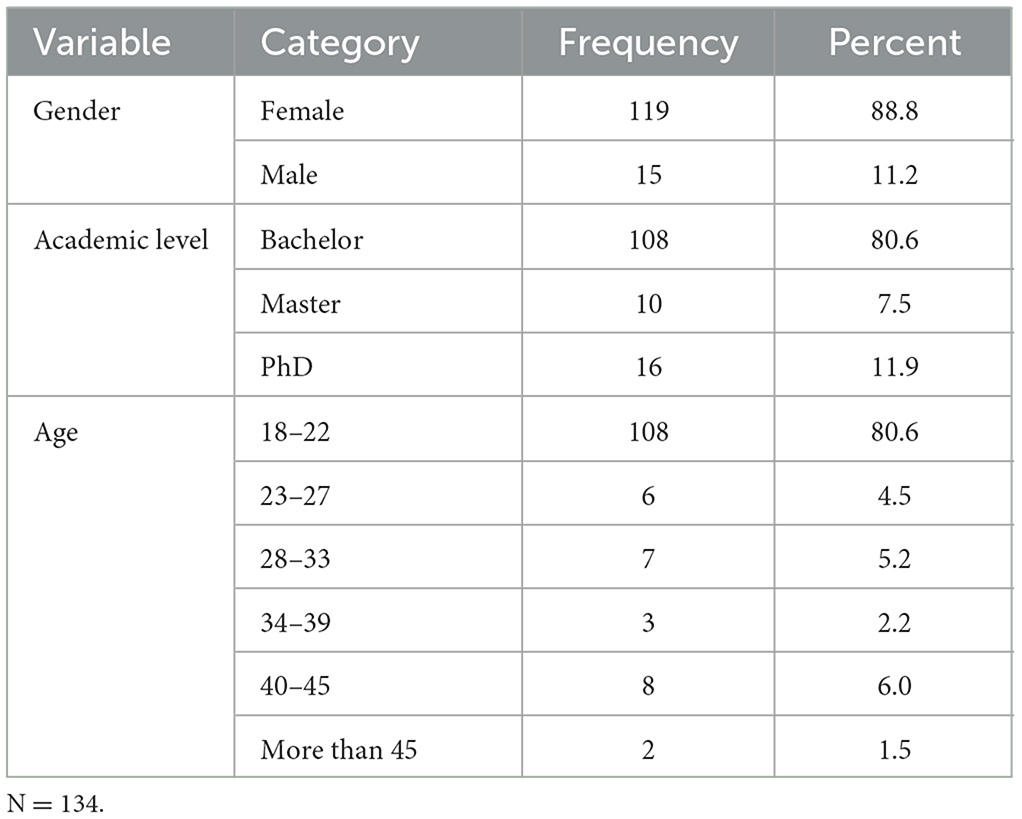Imagine a world where students have a digital companion, ready to assist them in both their personal and academic endeavors. In Jordan, this vision is gradually becoming a reality as education students begin to explore the potential of ChatGPT. A recent study sheds light on how these students are interacting with this innovative technology.
Exploring New Horizons
The study reveals that the use of ChatGPT among Jordanian education students is moderate, with a slight preference for personal over academic applications. This suggests that while students are starting to embrace the tool, they are still in the early stages of integrating it into their daily routines. The journey of discovery is just beginning, as students learn to navigate the myriad possibilities that ChatGPT offers.
Breaking Down Barriers
Interestingly, the study found no significant differences in ChatGPT usage based on gender or academic level. This is a promising sign that the technology is accessible to all, regardless of background or experience. It highlights the potential for ChatGPT to become a universal tool in education, breaking down barriers and fostering inclusivity.
"Despite ChatGPT's potential, it is not yet fully integrated into students' routines, likely due to limited familiarity with its features or uncertainty about its applications," the study notes.
The Path Forward
As students continue to familiarize themselves with ChatGPT, the possibilities for personal growth and academic success are boundless. With time and experience, they will learn to harness the full power of this technology, transforming their educational journeys. The key lies in providing students with the support and resources they need to explore and experiment with ChatGPT, unlocking its potential to enhance their learning experiences.
Originally published at https://www.frontiersin.org/journals/education/articles/10.3389/feduc.2025.1580310/full
ResearchWize Editorial Insight
The article "Jordanian Students and ChatGPT: A Journey of Discovery" is a beacon for both students and researchers, shedding light on the evolving landscape of educational technology. For students, particularly those in Jordan, it underscores the burgeoning relationship with digital tools like ChatGPT, which are gradually becoming integral to their learning and personal development. This journey is not just about adopting a new tool; it's about reimagining how learning can be more interactive, personalized, and inclusive.
For teachers, this article is a reminder of the importance of guiding students through the integration of technology in their learning processes. It highlights the need for educators to be facilitators in this digital journey, ensuring that students not only have access to tools like ChatGPT but also understand how to leverage them effectively. The fact that the study found no significant differences in usage based on gender or academic level is particularly heartening. It suggests that when implemented thoughtfully, technology can be a great equalizer in education, offering all students the opportunity to thrive regardless of their background.
In the classroom, this means fostering an environment where experimentation with technology is encouraged and supported. Teachers can play a pivotal role by creating assignments that incorporate ChatGPT, helping students to see its potential beyond mere novelty. This approach not only enriches the learning experience but also prepares students for a future where digital literacy is paramount.
For researchers, the article opens up avenues for further exploration into how digital tools like ChatGPT can be integrated into educational frameworks globally. It prompts questions about the best practices for implementation, the potential for personalized learning, and the long-term impacts on student engagement and achievement.
Ultimately, the article is a call to action for educators and researchers alike to embrace the possibilities of technology in education. It invites us to consider how we can support students in this digital age, ensuring that tools like ChatGPT become not just part of their routine, but a catalyst for deeper learning and inclusivity.
Looking Ahead
Inclusivity will be a cornerstone of this educational evolution. AI can help bridge gaps by offering personalized support to students who may struggle in traditional settings. By ensuring that all students, regardless of background or ability, have access to the same resources and opportunities, we can create a more equitable learning environment. This inclusivity can foster a sense of belonging and encourage students to engage more deeply with their studies.
The emotional side of schooling is just as important as the academic. AI can assist teachers in understanding the emotional well-being of their students, helping to create a supportive atmosphere where students feel safe to express themselves and take risks in their learning. By monitoring patterns and providing feedback, AI can alert teachers to students who may need extra support, ensuring that no one falls through the cracks.
To make this vision a reality, schools must prioritize training for both students and teachers. Workshops and resources can be provided to help everyone become comfortable with AI tools, understanding not just how to use them, but how to integrate them meaningfully into daily learning. This ongoing support will be crucial as students and educators navigate the new landscape of AI-enhanced education.
In the garden of future education, with AI as a nurturing force, we can cultivate a learning environment where every student is empowered to grow, thrive, and blossom into their best selves.
Originally reported by https://www.frontiersin.org/journals/education/articles/10.3389/feduc.2025.1580310/full.
Related Articles
- Google Pledges $1 Billion for AI Education, Job Training, and Research
- I put 5 study hacks to the test this year – here’s what I learnt
- University of Nevada, Reno launches 'Pack AI' to integrate artificial intelligence
📌 Take the Next Step with ResearchWize
Want to supercharge your studying with AI? Install the ResearchWize browser extension today and unlock powerful tools for summaries, citations, and research organization.
Not sure yet? Learn more about how ResearchWize helps students succeed.

